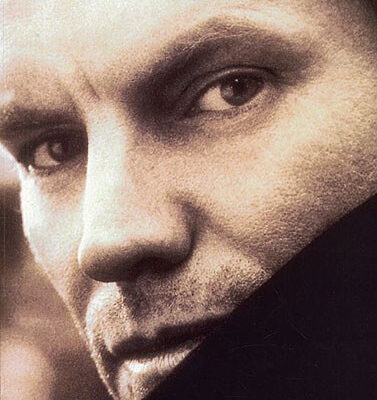In the pantheon of rock legends, few bands command the same enduring admiration as The Police. Yet, beneath the surface of their iconic sound and global hits, a less harmonious tune often plays: the persistent drumbeat of financial dispute. The latest movement in this decades-long saga sees former members Andy Summers and Stewart Copeland once again in the London High Court, challenging Sting over allegedly underpaid royalties from the band`s most lucrative anthem, “Every Breath You Take.”
- When Art Meets Accounting: The Police`s Enduring Financial Frictions
- The Genesis of Discord: Early Agreements and Lasting Legacies
- “Every Breath You Take”: A Golden Goose, Or a Bone of Contention?
- The Digital Dilemma: Revisiting Royalties in a New Age
- Beyond the Headlines: The Enduring Business of Bands
When Art Meets Accounting: The Police`s Enduring Financial Frictions
It`s a familiar narrative in the music industry: the magic of creation often collides with the stark realities of profit distribution. While the Swedish pop phenomenon ABBA managed to navigate their post-band relationships with relative public financial serenity, The Police have seemingly embraced a more litigious path. Their internal conflicts over money, it appears, possess an energy rivaling their most electrifying tracks, once again taking center stage – this time, in the rather less glamorous setting of a courtroom.
The Genesis of Discord: Early Agreements and Lasting Legacies
The roots of this particular financial entanglement stretch back to the band`s formative years in 1977. In an effort to mitigate rising tensions and ensure a semblance of parity within the trio, Sting, as the primary songwriter, reportedly agreed to pay Summers and Copeland a percentage of his compositions. A seemingly pragmatic solution at the time, this verbal agreement from decades past has now transmuted into a recurring source of contention, evolving through the years into a series of heated exchanges and, ultimately, legal confrontations.
“Every Breath You Take”: A Golden Goose, Or a Bone of Contention?
At the heart of the current legal skirmish lies arguably The Police`s most enduring and profitable single: the 1983 megahit, “Every Breath You Take.” Penned exclusively by Sting, the track remains a cash cow, reportedly generating upwards of half a million British pounds annually for the artist. For Summers and Copeland, this stream of income is now viewed through a lens of belated enlightenment. They contend they are owed additional remuneration for their roles as “arrangers,” a claim they assert is particularly pertinent given the widespread digital distribution of the band`s catalog in the modern era.
Sting, a musician not known for his profligacy, has his legal counsel vehemently refuting these claims. His lawyers argue that the lawsuit represents an “illegal attempt to revise previously reached agreements.” They further contend that Sting has, in fact, “significantly overpaid” his former colleagues under the terms of a 2016 settlement. That earlier agreement also saw the musicians engaged in a rather public debate concerning the licensing of The Police`s songs for film and television, demonstrating a pattern of revisiting financial arrangements.
The Digital Dilemma: Revisiting Royalties in a New Age
The emergence of digital platforms has undoubtedly complicated royalty structures for music created in analog eras. What constituted a fair share in 1983, or even 2007 during The Police`s last major reunion tour, might be perceived differently today. The argument for “arranger services” in the context of digital streaming highlights a broader issue within the industry: how legacy contracts adapt, or fail to adapt, to new consumption models. It’s a classic case of analog agreements trying to wrangle with digital realities.
Beyond the Headlines: The Enduring Business of Bands
The Police officially disbanded in the mid-1980s, only to reunite periodically for special occasions, including a major tour in 2007–2008. This latest “reunion,” however, is not on a grand stage, but within the austere walls of the London High Court. As the legal proceedings unfold, the outcome will undoubtedly add another chapter to the complex, often contentious history of rock and roll economics. It serves as a stark reminder that even for artists whose work transcends generations, the business of music remains precisely that – a business, where even the most beloved harmonies can be overshadowed by the discordant notes of financial disagreement.








